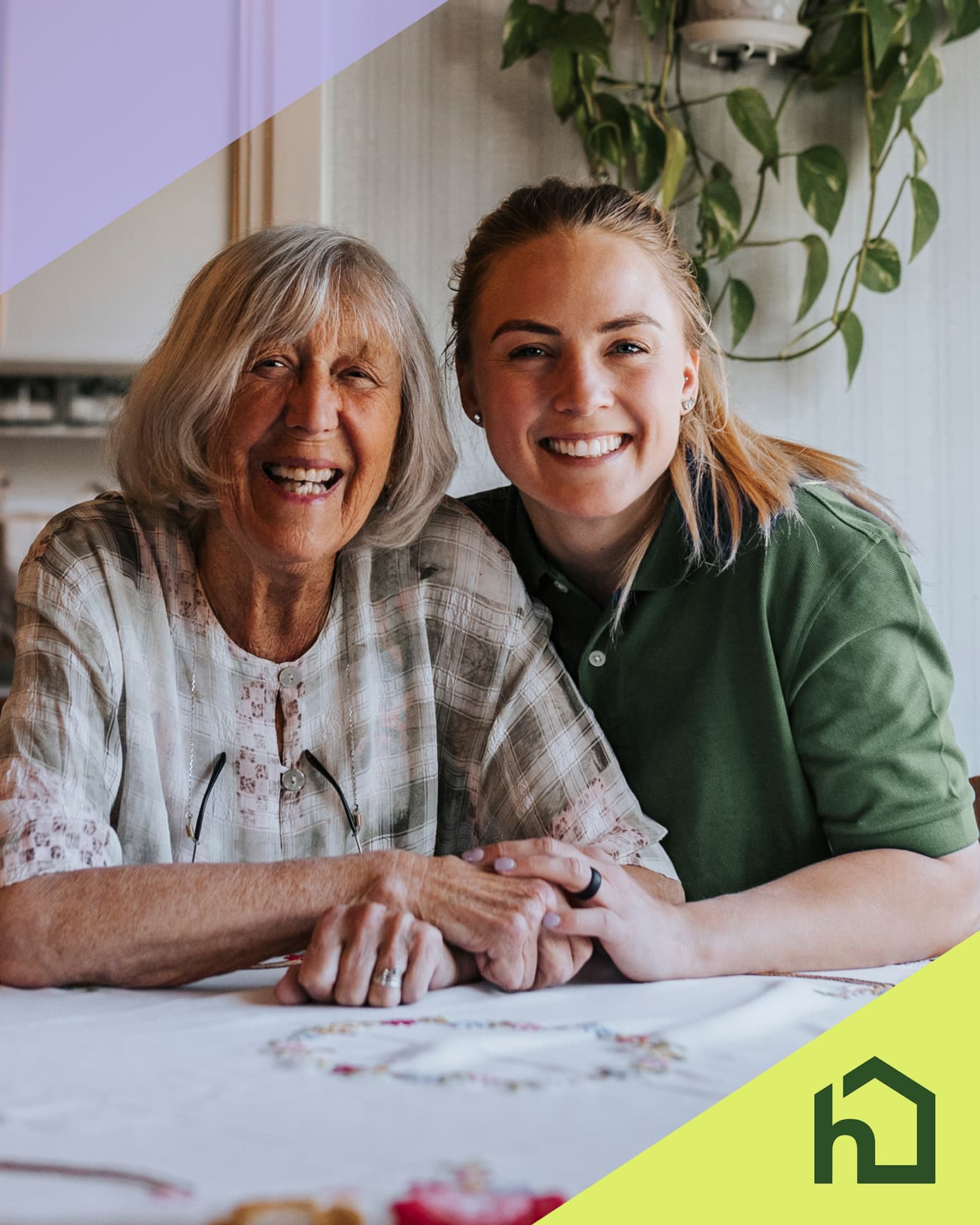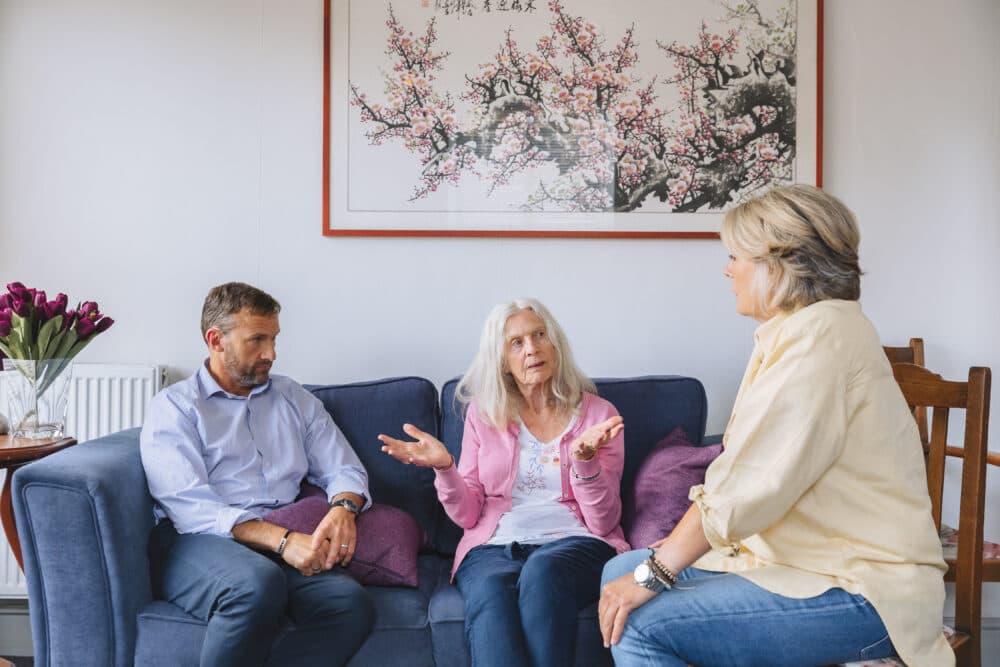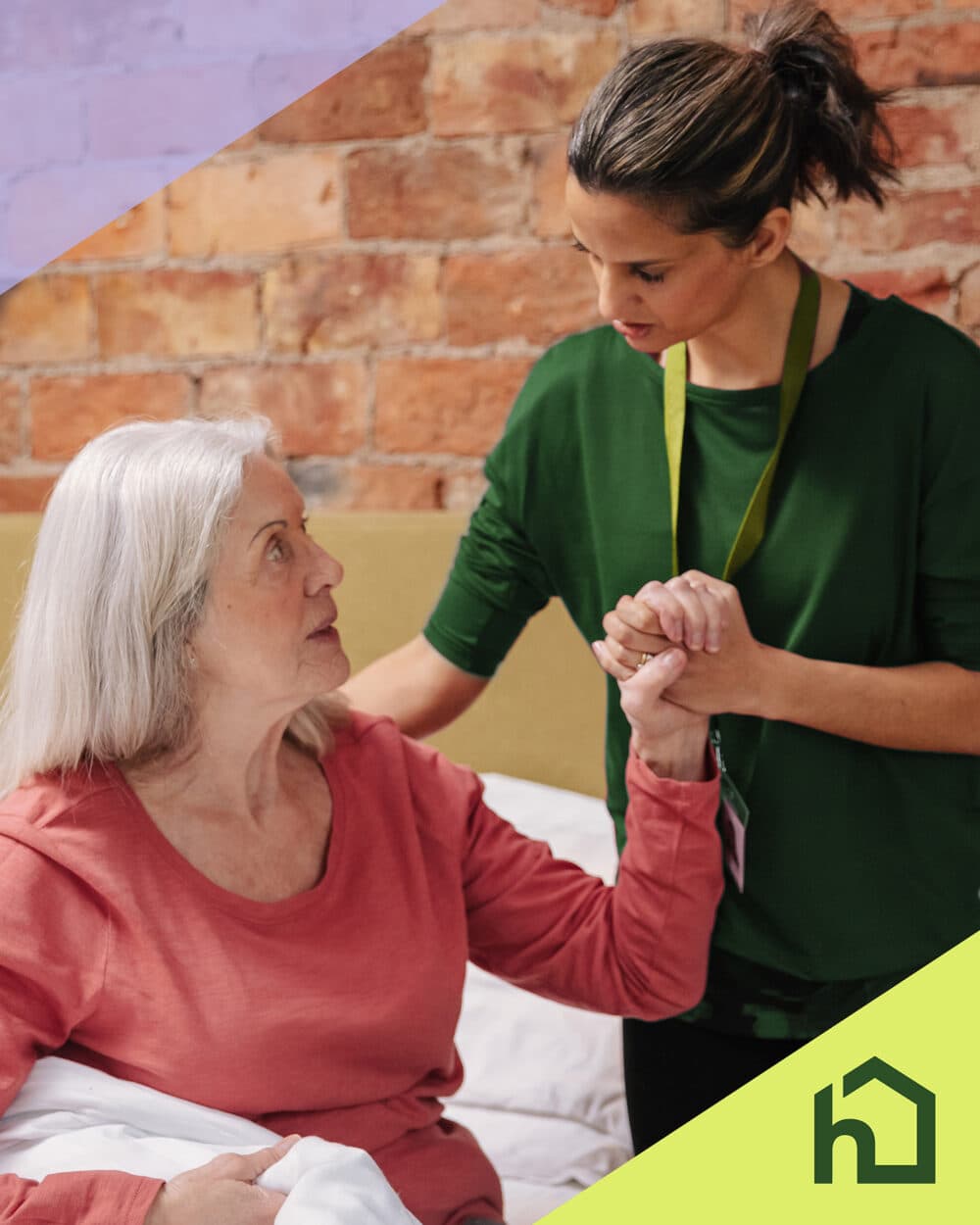Supporting Mental Health in Older Adults: A Guide for Families and Carers

At Home Instead, we understand that mental wellbeing is just as important as physical health — especially as we age.
For many older adults, emotional challenges can quietly build up. Feelings of loneliness, grief, confusion or anxiety may go unnoticed, particularly when daily routines appear unchanged. That’s why it’s vital that we all learn to recognise the signs of mental distress and understand how to offer the right support.
Whether you’re a family member, a friend, or a Care Professional, your presence and understanding can make a life-changing difference.
Why Mental Health Deserves More Attention in Later Life
While growing older brings wisdom, it can also bring change — retirement, reduced mobility, the loss of loved ones, or a shrinking social circle. These transitions can lead to low mood, anxiety, or even depression.
Unfortunately, older people are often less likely to speak up about how they’re feeling. They may fear being a burden, or believe that “feeling low” is just part of ageing. It’s not.
Mental health concerns in later life are real, valid — and treatable.
Signs to Look Out For
It’s important to recognise the signs that an older adult may be struggling with their mental wellbeing. These can include:
- Withdrawal from social activities or family conversations
- Loss of interest in hobbies or daily routines
- Changes in appetite or sleep patterns
- Expressions of hopelessness, sadness, or anxiety
- Forgetfulness, confusion, or irritability
- Signs of neglecting personal care
If you notice any of these behaviours, don’t dismiss them as “just old age.” Instead, start a gentle, compassionate conversation.

What Families and Carers Can Do
You don’t need to have all the answers to make a difference — just your care and presence is powerful. Here are some practical ways to support an older loved one:
- Start the Conversation
Let them know you’re there to listen, without judgment. Try asking,
“You’ve seemed a bit quieter lately — is there anything on your mind?”
- Stay Connected
Loneliness can be one of the biggest triggers for poor mental health. Keep in touch regularly, and involve your loved one in conversations and decisions that affect them.
- Encourage Routine
Having a regular routine helps promote stability and reduces feelings of aimlessness. Encourage meals, sleep, activities, and outings at regular times.
- Promote Purpose
Help older adults feel valued. This could mean helping prepare a meal, folding laundry, or sharing their wisdom with grandchildren — every small role matters.
- Look After Yourself
If you’re supporting a loved one, it’s crucial to protect your own mental health too. Carer burnout is real — and recognising your limits is an act of love, not guilt.

Local Mental Health Support in West Sussex
Here are some valuable resources for families and carers in our community:
Time to Talk – Arun & Chichester
Free counselling and emotional support for adults (including carers).
👉 www.timetotalk.org.uk
Pathfinder West Sussex
Mental health services and wellbeing support tailored for local needs.
👉 www.pathfinderwestsussex.org.uk
Carers Support West Sussex
Specialist advice, respite support, and mental health help for unpaid carers.
👉 www.carerssupport.org.uk
Age UK West Sussex, Brighton & Hove
A wide range of services, from befriending to mental wellbeing workshops.
👉 www.ageuk.org.uk/westsussexbrightonhove
What to Do in a Crisis
If you or a loved one is experiencing a mental health crisis, please seek help immediately:
📞 Call NHS 111 – for urgent medical advice and mental health support
📞 Call Samaritans on 116 123 – free, confidential, and available 24/7
🚨 Dial 999 – if someone is at serious risk of harm
🌐 Sussex Mental Health Crisis Support:
👉 www.sussexpartnership.nhs.uk/help-crisis
You Are Not Alone
Every day, our Care Professionals offer emotional as well as practical support. From a warm conversation over tea to companionship-led visits, we ensure that mental wellbeing is part of the care we provide.
We believe in creating a world where older people feel seen, heard, and supported — and where carers have the tools and reassurance they need too.
Because at Home Instead, care means community — and community means no one is left behind.
If you need guidance, support, or simply a listening ear, we’re here for you.
📞 Get in touch with our friendly team today to learn more about how we can support your loved one’s mental wellbeing.
🔗 Contact Us
🔗 Learn more about Mental Health Awareness Week
